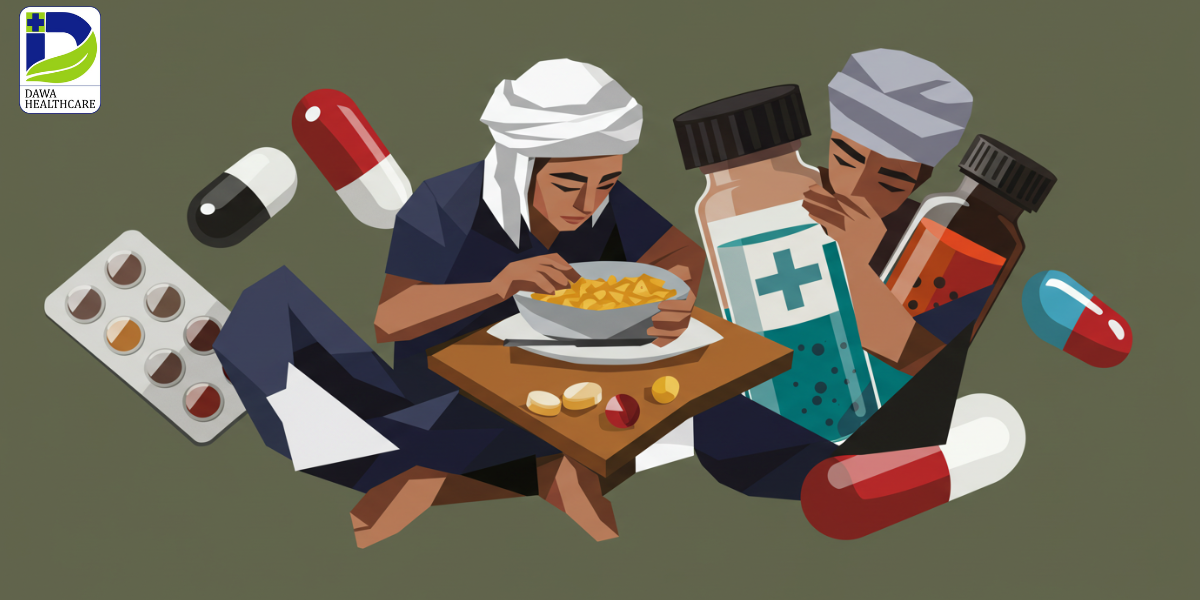
Fasting with Medication: How to Adjust Your Medication Schedule During Ramadan
Ramadan is a holy month celebrated by millions of Muslims around the globe. During this time, fasting from dawn (Suhoor) until sunset (Iftar) is a fundamental practice. However, individuals who take medications regularly may face challenges in maintaining their treatment schedules while observing the fast. This guide provides practical strategies to adjust medication timings safely and effectively during Ramadan.
Understanding the Importance of Medication Adjustment
Fasting requires abstaining from food, drink, and oral medications during daylight hours. For individuals with chronic illnesses, improper medication adjustments can lead to health complications. Consulting a healthcare professional before making changes is crucial to ensure a safe fasting experience.
Consult Your Doctor or Pharmacist
Before making any changes to your medication routine, consult your healthcare provider. Some medications may need to be adjusted in terms of timing or dosage, while others may require alternative formulations such as extended-release versions.
Key Considerations When Adjusting Medication Timing
1. Type of Medication
Medications can be classified into short-acting, long-acting, and sustained-release formulations. Understanding their duration of action helps in determining the best alternative schedule.
2. Health Condition
Patients with diabetes, hypertension, heart disease, epilepsy, asthma, or gastrointestinal disorders require personalized medication adjustments to avoid complications.
3. Dosage Frequency
o Once-daily medications: Can usually be taken at Suhoor or Iftar.
o Twice-daily medications: Typically adjusted to Suhoor and Iftar.
o Thrice-daily or more: May require medical advice to switch to longer-acting formulations.
Medication Schedule Adjustments During Ramadan
1. Diabetes Medications
- Oral Antidiabetics:
- Metformin: Can be taken with Suhoor and Iftar.
- Sulfonylureas (e.g., glimepiride, gliclazide): Risk of hypoglycemia; dosage should be adjusted by a doctor.
- Insulin Users:
- Short-acting insulin may be moved to Iftar.
- Long-acting insulin doses should be adjusted by a healthcare provider.
2. Hypertension and Cardiac Medications
- Beta-blockers, ACE inhibitors, and diuretics should be adjusted to prevent dehydration.
- Long-acting formulations are preferable.
- Check blood pressure regularly.
3. Gastrointestinal Medications
- Acid reflux (GERD) and Ulcer Medications:
- Proton Pump Inhibitors (PPIs) like omeprazole can be taken at Suhoor.
- Antacids can be taken after Iftar.
4. Asthma Medications
- Inhalers do not invalidate fasting and can be used as needed.
- Long-acting inhalers should be taken before Suhoor or after Iftar.
5. Antibiotics
- If prescribed three times daily, consult a doctor for alternatives.
- Can be adjusted to twice daily with approval.
6. Painkillers and Anti-Inflammatory Drugs
- Paracetamol can be taken at Suhoor and Iftar.
- NSAIDs like ibuprofen should be taken with food to avoid gastric irritation.
7. Thyroid Medications
- Levothyroxine should be taken on an empty stomach, preferably before Suhoor.
General Tips for Managing Medications During Ramadan
- Maintain Hydration: Drink at least 8 glasses or 2-3 liters of water between Iftar and Suhoor to prevent dehydration.
- Monitor Symptoms: Keep track of any adverse effects and consult a doctor if needed.
- Avoid Skipping Doses: Follow an adjusted schedule to ensure consistent medication levels in the body.
- Modify Diet: Eat balanced meals with complex carbohydrates and proteins to maintain energy levels.
When to Break the Fast
Islam allows exemptions from fasting in cases of illness or when health is at risk. If you experience severe hypoglycemia, dehydration, or other medical emergencies, break the fast immediately and seek medical attention.
Final Thoughts
Managing medications while fasting requires careful planning to maintain both your health and religious commitments. Consulting with experts at Dawa Healthcare Pharmacy ensures that your medication schedule is safely adjusted for suhoor and iftar, minimizing potential side effects. It is essential to follow a structured plan, stay hydrated between iftar and suhoor, and avoid skipping doses to prevent health complications.
For added convenience, Dawa Healthcare Online Pharmacy in Karachi provides easy access to medications and professional guidance from the comfort of your home.
💊 Fast with faith, heal with care—because your health comes first!

